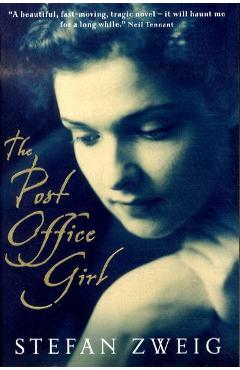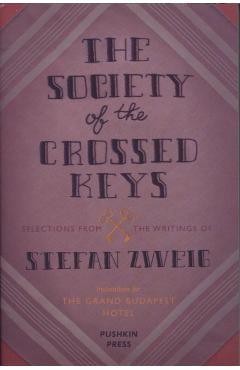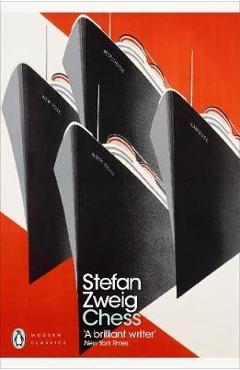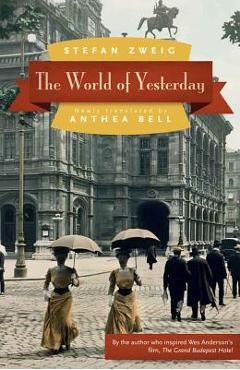The Post-Office Girl - Stefan Zweig

Detalii The Post-Office Girl - Stefan
Vânzător
libris.ro
Pret
94.58 Lei
94.58 Lei
105.09 Lei
Categorie (vânzător)
Fiction
Marca
Stefan Zweig
Descriere YEO:
Descriere magazin:
Wes Anderson on Stefan Zweig: I had never heard of Zweig...when I just more or less by chance bought a copy of Beware of Pity . I loved this first book. I also read the The Post-Office Girl . The Grand Budapest Hotel has elements that were sort of stolen from both these books. Two characters in our story are vaguely meant to represent Zweig himself -- our Author character, played by Tom Wilkinson, and the theoretically fictionalised version of himself, played by Jude Law. But, in fact, M. Gustave, the main character who is played by Ralph Fiennes, is modelled significantly on Zweig as well. The post-office girl is Christine, who looks after her ailing mother and toils in a provincial Austrian post office in the years just after the Great War. One afternoon, as she is dozing among the official forms and stamps, a telegraph arrives addressed to her. It is from her rich aunt, who lives in America and writes requesting that Christine join her and her husband in a Swiss Alpine resort. After a dizzying train ride, Christine finds herself at the top of the world, enjoying a life of privilege that she had never imagined. But Christine\'s aunt drops her as abruptly as she picked her up, and soon the young woman is back at the provincial post office, consumed with disappointment and bitterness. Then she meets Ferdinand, a wounded but eloquent war veteran who is able to give voice to the disaffection of his generation. Christine\'s and Ferdinand\'s lives spiral downward, before Ferdinand comes up with a plan which will be either their salvation or their doom. Never before published in English, this extraordinary book is an unexpected and haunting foray into noir fiction by one of the masters of the psychological novel.

The Post-Office Girl - Stefan - Disponibil la libris.ro
Pe YEO găsești The Post-Office Girl - Stefan de la Stefan Zweig, în categoria Fiction.
Indiferent de nevoile tale, The Post-Office Girl - Stefan Zweig din categoria Fiction îți poate aduce un echilibru perfect între calitate și preț, cu avantaje practice și moderne.
Preț: 94.58 Lei
Caracteristicile produsului The Post-Office Girl - Stefan
- Brand: Stefan Zweig
- Categoria: Fiction
- Magazin: libris.ro
- Ultima actualizare: 28-10-2025 01:22:05
Comandă The Post-Office Girl - Stefan Online, Simplu și Rapid
Prin intermediul platformei YEO, poți comanda The Post-Office Girl - Stefan de la libris.ro rapid și în siguranță. Bucură-te de o experiență de cumpărături online optimizată și descoperă cele mai bune oferte actualizate constant.
Descriere magazin:
Wes Anderson on Stefan Zweig: I had never heard of Zweig...when I just more or less by chance bought a copy of Beware of Pity . I loved this first book. I also read the The Post-Office Girl . The Grand Budapest Hotel has elements that were sort of stolen from both these books. Two characters in our story are vaguely meant to represent Zweig himself -- our Author character, played by Tom Wilkinson, and the theoretically fictionalised version of himself, played by Jude Law. But, in fact, M. Gustave, the main character who is played by Ralph Fiennes, is modelled significantly on Zweig as well. The post-office girl is Christine, who looks after her ailing mother and toils in a provincial Austrian post office in the years just after the Great War. One afternoon, as she is dozing among the official forms and stamps, a telegraph arrives addressed to her. It is from her rich aunt, who lives in America and writes requesting that Christine join her and her husband in a Swiss Alpine resort. After a dizzying train ride, Christine finds herself at the top of the world, enjoying a life of privilege that she had never imagined. But Christine\'s aunt drops her as abruptly as she picked her up, and soon the young woman is back at the provincial post office, consumed with disappointment and bitterness. Then she meets Ferdinand, a wounded but eloquent war veteran who is able to give voice to the disaffection of his generation. Christine\'s and Ferdinand\'s lives spiral downward, before Ferdinand comes up with a plan which will be either their salvation or their doom. Never before published in English, this extraordinary book is an unexpected and haunting foray into noir fiction by one of the masters of the psychological novel.





